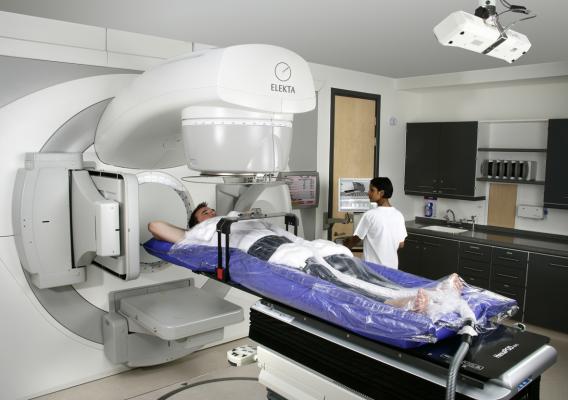
October 19, 2016 — A Yale Cancer Center team completed a multi-institutional analysis of treatment options for patients with newly diagnosed EGFR-mutant non-small cell lung cancer (NSCLC) with brain metastases to determine the best option for treatment. Stereotactic radiosurgery, in combination with targeted therapy using EGFR tyrosine kinase inhibitors, resulted in the longest survival and best outcomes for patients.
The findings were presented Sept. 26 at the American Society for Therapeutic Radiology and Oncology (ASTRO) meeting in Boston.
This study analyzed three current options by reviewing outcomes of 351 patients from six institutions with EGFR-mutant NSCLC who were treated with either stereotactic radiosurgery in conjunction with targeted therapy (100), whole brain radiotherapy in conjunction with targeted therapy (120), or targeted therapy alone followed by stereotactic radiosurgery or whole brain radiotherapy if salvage was required (131).
The multi-institutional analysis demonstrated that the use of targeted therapy alone with deferral of radiotherapy resulted in inferior overall survival. Stereotactic radiosurgery in conjunction with targeted therapy resulted in the longest overall survival for patients.
“Patients with advanced NSCLC that has newly spread to their brain have many treatment options today,” said Veronica Chiang, M.D., senior author on the study and an associate professor of neurosurgery and of therapeutic radiology at Yale School of Medicine. “Physicians need to feel confident that we know the best option and this study helps us to identify that. A randomized trial will be our next step.”
For more information: www.astro.org


 February 04, 2026
February 04, 2026 









